In celebration of Women’s Month, UPRI YouthMappers (UPRIYM) recently hosted Mapping HERizons: #AccelerateAction for Women’s Spaces, a collaborative event with the UN Mappers, a community of mapping enthusiasts collaborating to collect, validate, and disseminate geospatial open data in areas where the United Nations carry field operations with the goal of supporting the decision-making process with more accurate location-based data. This initiative aimed to promote inclusivity and representation by mapping women’s spaces using OpenStreetMap (OSM), ensuring that essential amenities and locations relevant to women are accurately mapped and accessible.
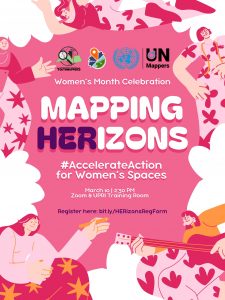
This year’s international theme for Women’s Month, #AccelerateAction, served as a guiding force for the event, emphasizing the urgency of advancing gender equality and amplifying women’s voices in various fields, including mapping and technology.
Empowering Women in Mapping and Tech
The event featured inspiring talks from Heather Leson of the International Federation of Red Cross and Red Crescent Societies (IFRC) and Arnalie Vicario of UN Mappers. Both speakers emphasized the importance of increasing women’s participation in mapping, leadership, and technology.
Heather Leson delivered an empowering message, encouraging women to be authentic, not to feel intimidated, and to actively take space in the OSM community. She highlighted the need for more women leaders in the tech industry, reinforcing the idea that representation matters in shaping inclusive digital and geospatial spaces.
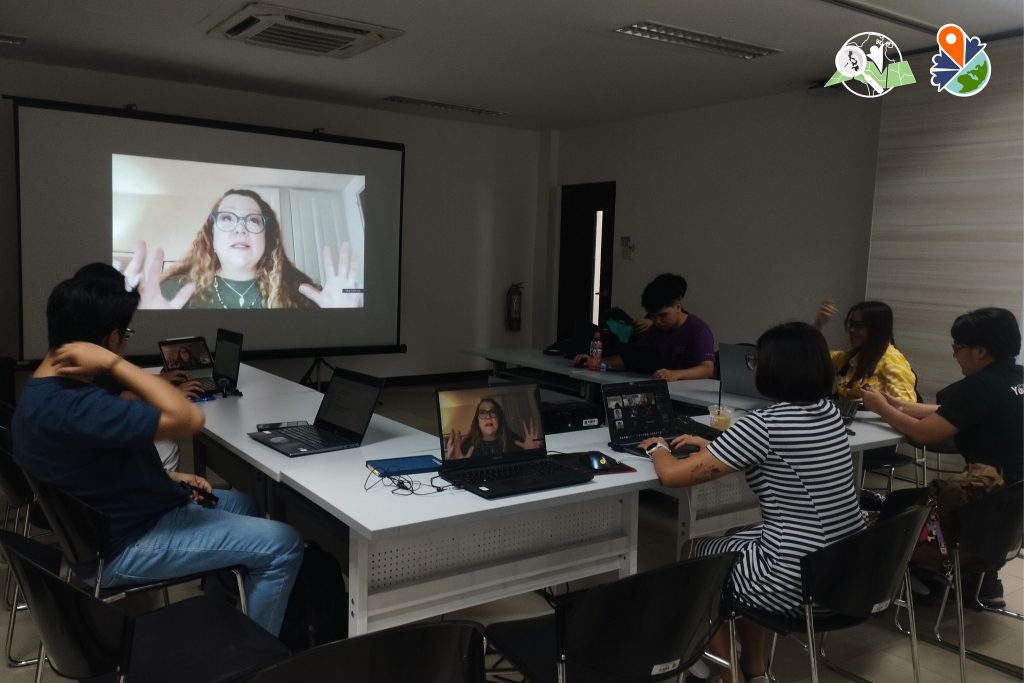
Arnalie Vicario, representing UN Mappers, presented their key initiatives, which focus on leveraging mapping to support women and promote peace and security. She underscored the significance of geospatial data in addressing humanitarian challenges and ensuring that women’s spaces are accurately recognized and prioritized.
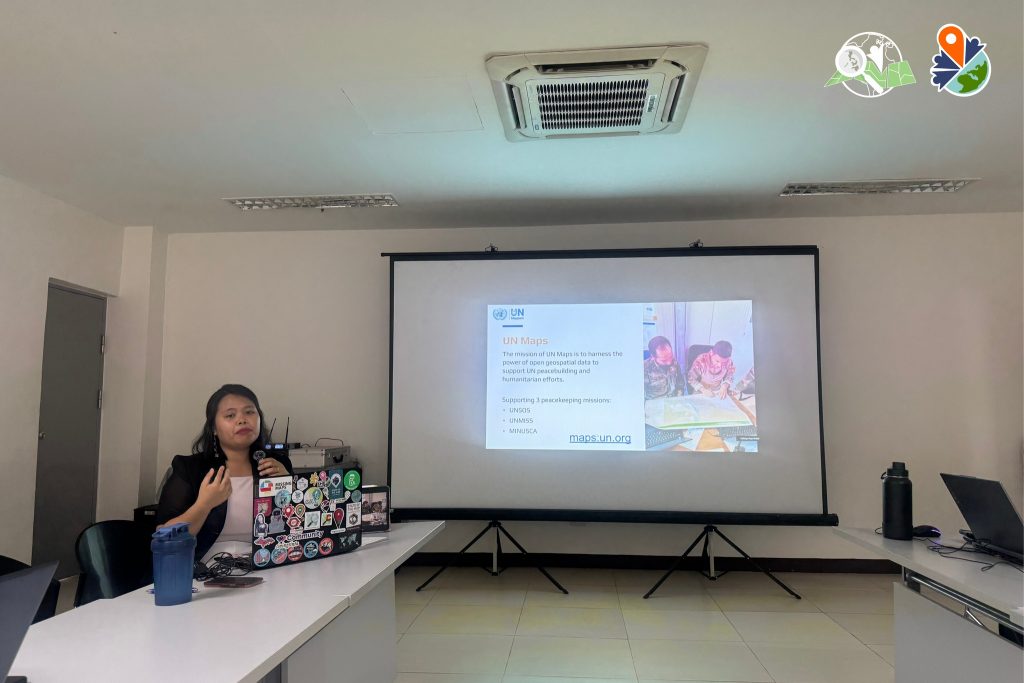
Mapping Women’s Spaces
Following the inspiring talks, the event transitioned into an engaging mapathon session led by Ceejay Abilay of UPRIYM. Participants contributed to OSM by mapping key spaces relevant to women, such as health centers, shelters, safe spaces, and other essential amenities. A curated list of recommended amenities was provided as a guide, and participants were also encouraged to incorporate local knowledge in their mapping efforts.
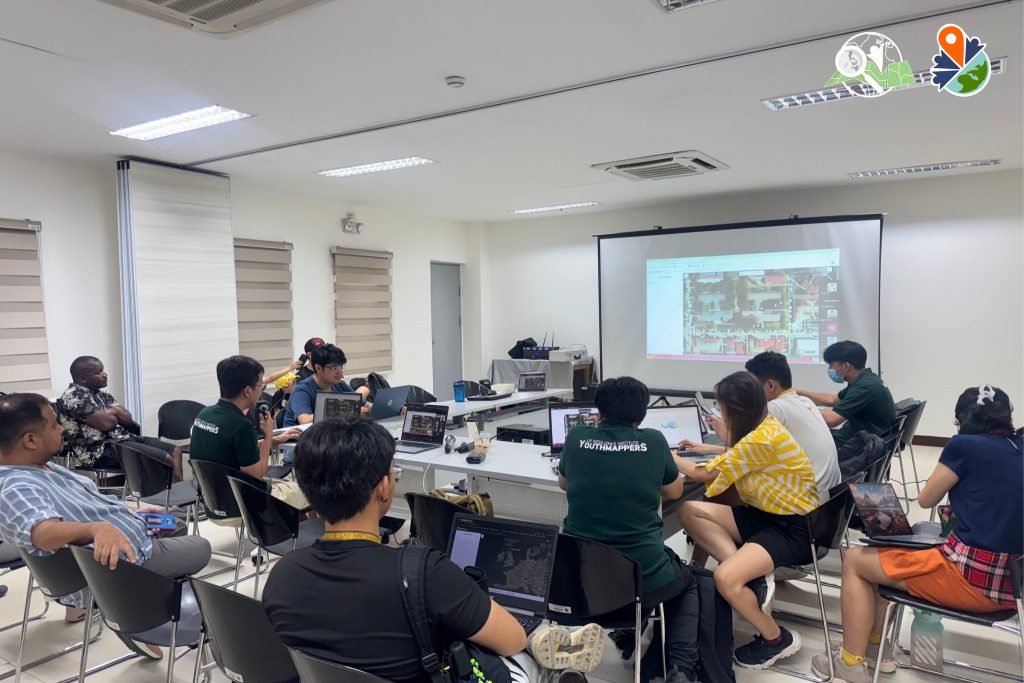
To enhance the accuracy and richness of mapped data, attendees utilized Mapillary and KartaView, two tools that offer street-level imagery for additional reference points. This collaborative effort not only improved OSM data but also empowered participants to recognize the significance of community-driven mapping in advocating for women’s needs.
Why Mapping Women’s Spaces Matters
OSM is more than just an open database—it is a revolutionary platform that empowers communities to take control of their own spatial narratives. Through open, accessible, and crowd-sourced data, OSM has transformed how we map and visualize the spaces around us, ensuring that historically overlooked areas—such as women’s health centers, birthing clinics, and safe spaces—are mapped, acknowledged, and accessible to those who need them most.
By integrating local knowledge with global mapping efforts, this initiative strengthens data accuracy and promotes inclusivity in city planning and development. When underrepresented communities actively contribute to OSM, they reclaim visibility in a digital landscape that has long been dominated by male-driven platforms.
Accurate geospatial data in OSM enables better planning, policy-making, and resource allocation, ensuring that women’s needs are met within their communities. More importantly, it helps decision-makers, humanitarian organizations, and advocacy groups identify gaps in infrastructure and services, leading to more responsive, data-driven solutions that cater to women’s health, safety, and well-being.
Looking Ahead: Strengthening Women’s Representation in Open Mapping
The #AccelerateAction for Women’s Spaces event underscored the vital role of women in tech, mapping, and advocacy. As the OSM and geospatial communities continue to grow, fostering more inclusive spaces for women remains an essential goal. By encouraging women leaders, mappers, and changemakers, we pave the way for a future where representation and accessibility go hand in hand.
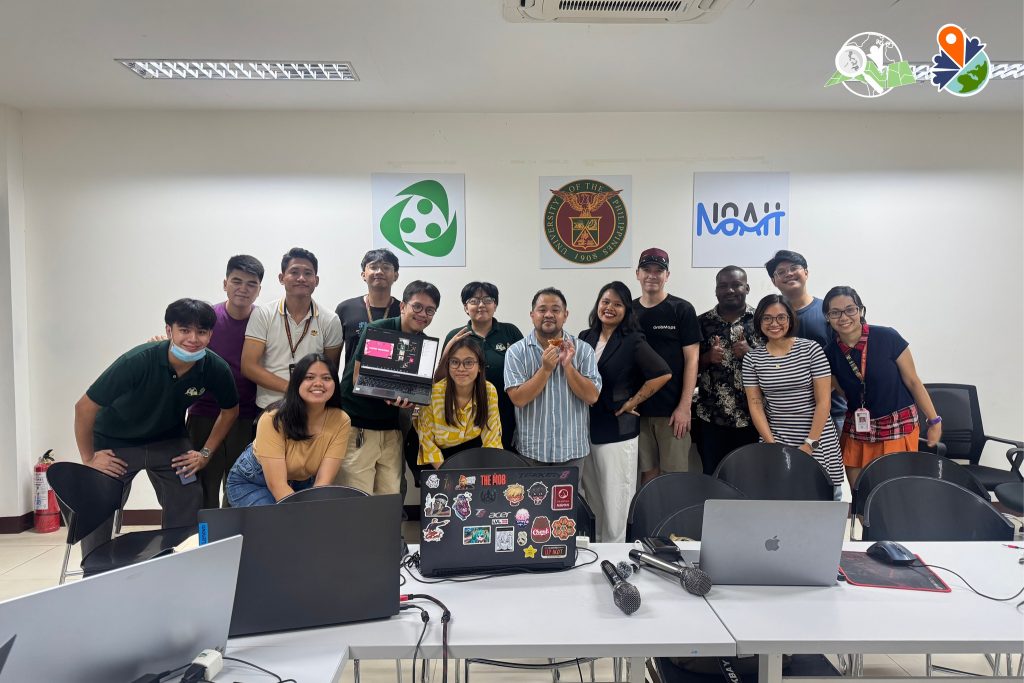
With continued collaboration between organizations like UPRIYM and UN Mappers, the advocacy for inclusive and action-driven mapping will accelerate. We can ensure that women’s spaces are not just mapped—but also recognized, valued, and protected.
